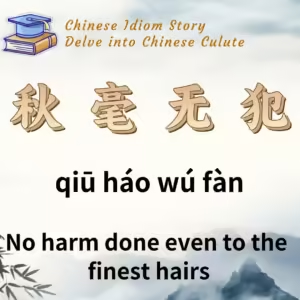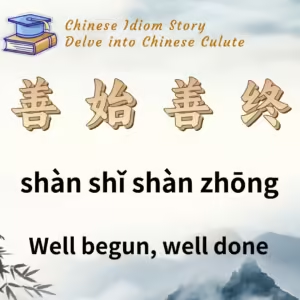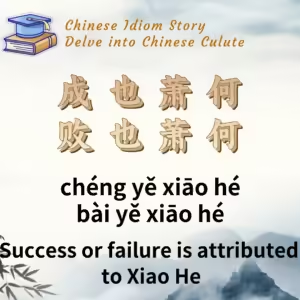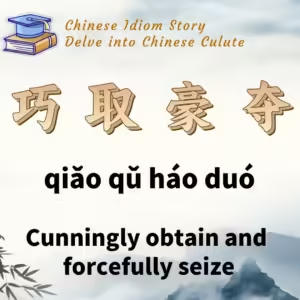
Chinese Idiom: 秋毫无犯 (Qiu Hao Wu Fan)
English Translation: No harm done even to the finest hairs
pīn yīn: qiū háo wú fàn
Idiom Meaning: This idiom means to maintain strict discipline and not to take even the slightest advantage from the common people; it emphasizes fairness and respect for others’ property.
Historical Source: “史记” (Records of the Grand Historian), specifically in the biography of Han Xin.
Idiom Story:
In 206 BC, Liu Bang, the founder of the Han Dynasty, decided to appoint Han Xin as a general. One day in June, Liu Bang performed a ritual bath and set up a platform in the square to hold a grand ceremony for the appointment.
After conducting the ceremony, Liu Bang asked Han Xin, “The Prime Minister (referring to Xiao He) has recommended you several times, and I believe you have brilliant strategies. Please advise me.” Han Xin understood that Liu Bang was asking about how to contend with Xiang Yu, so he analyzed Xiang Yu’s strengths and weaknesses.
Han Xin pointed out that although Xiang Yu appeared strong, he had made four significant mistakes that could easily turn his strength into weakness. Liu Bang was intrigued and asked for details on these mistakes.
Han Xin elaborated on Xiang Yu’s errors:
- Misallocation of Territories: Xiang Yu conferred titles to his vassals but abandoned the advantageous strategic position of Guanzhong to return to Pengcheng (modern-day Xuzhou).
- Disregarding Promises: He violated the prior agreement made with the former king of Chu, refusing to distribute land based on merit and instead gave favorable territories to those he trusted while placing others in less desirable locations, causing discontent among the lords.
- Loss of Trust: By exiling the unanimously supported King Huai of Chu to Changsha, Xiang Yu lost the trust of the lords.
- Brutality: Wherever Xiang Yu went, he committed slaughter and looting, resulting in increasing resentment from the people, who only feared him due to his violence.
Han Xin then contrasted Xiang Yu’s approach with Liu Bang’s. He praised Liu Bang for treating the people with respect: “When you entered Wuguan, you did no harm at all. You abolished the harsh laws of the Qin and established a few fair regulations with the local populace. The people of Qin are eager for you to rule them.”
Han Xin emphasized that unlike Xiang Yu, Liu Bang gained the goodwill of the people. He expressed that if Liu Bang were to march eastward, the lands of the Three Qin could easily be won over by merely sending a proclamation.
Liu Bang listened intently, feeling a deep admiration for Han Xin’s intelligence and insight. This exchange highlighted the principle of “秋毫无犯,” symbolizing the importance of treating the populace fairly and not exploiting them, thus ensuring a ruler’s legitimacy and support.






